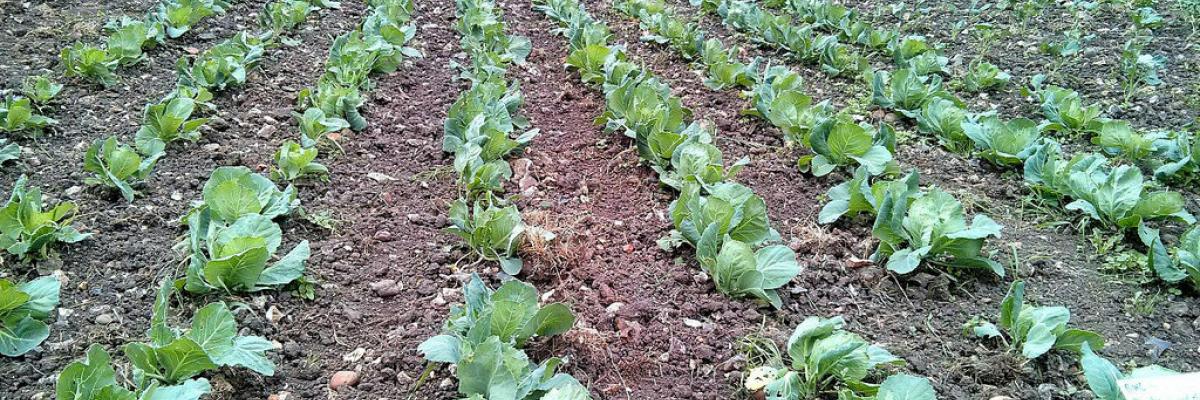

Peat-free woodchip compost for growing media
Field Lab Report
Download the PDF
This report documents a field lab run as part of the Duchy Originals Future Farming Programme (now Innovative Farmers) that was held at Iain Tolhurst’s holding (Tolhurst Organic) in 2014. Iain has experimented with composting woodchip and using it as a growing media for transplants for a few years. The field lab trial explored using growing media based on woodchip compost, evaluating its performance in comparison to other growing materials. The trial involved comparing four different mediums in which cabbage and leek transplants were raised. Crop performance (growth, health, yield, quality of end product) was assessed throughout the growing period. The report documents reasons behind the field lab being formed, relevant prior research that had been identified, descriptions of the field lab meetings, the experimental questions that were asked, the trial methods that were used, limitations and assumptions, developments and adjustments, results, grower feedback, and recommendations for future trials. It provides some interesting insights.
- The field lab trial compared woodchip compost (produced at Tolhurst Organic), Klasmann organic propagation mixture, a standard commercial product for plant-raising in certified organic horticulture, and commercially available biochar, mixed into both propagation materials.
- The report explains that the trial was set up on a small scale, aiming to represent ‘average’ conditions comparable to farmers’ own trials and experiments ; the results gave an overview and first impression of the comparative performance of the growing media.
- Woodchip compost production can be carried out as part of a larger farm composting operation (compost produced at Tolhurst Organic is used after the raw material has been composted for about 18 months).
- It is possible to use woodchip compost to raise transplants and as a fertiliser and source of additional organic matter.
- The trial showed that woodchip compost can provide a good alternative to commercially available, peat-based growing media. Growth, health, and yield of the assessed crops were comparable, with only small differences in weight and quality. Although there may be some disadvantages in relation to weight/structure or water holding capacity, it provides some environmental and economic advantages through making use of a local waste product.
- The choice of wood, tree species, or tree age could significantly impact on the compost quality.
View an article based on the field lab that was published in the Winter 2014 edition of 'The Organic Grower' here.
